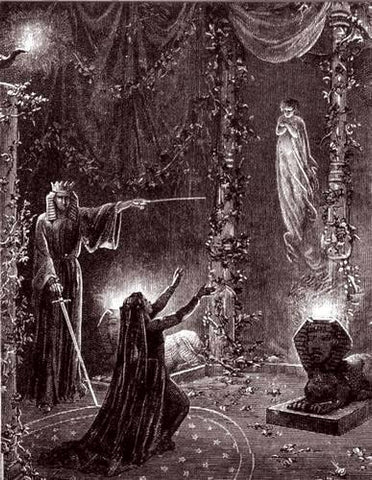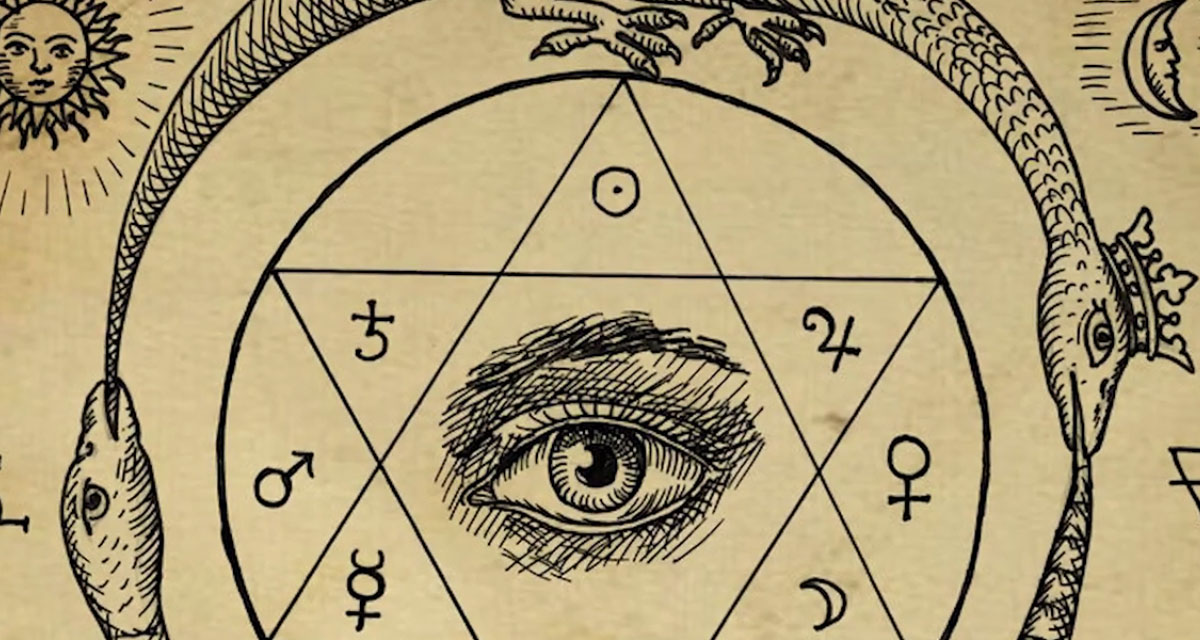What is Magick? Magick, often spelled with a ‘k’ to differentiate it from stage illusions, is a multifaceted practice rooted in the manipulation of unseen energies to bring about desired changes in reality. It draws from ancient traditions, spiritual philosophies, and personal willpower, encompassing rituals, symbols, and altered states of consciousness. Far more than mere trickery, magick serves as a tool for personal transformation, spiritual growth, and interaction with the metaphysical world, making it a compelling subject for those seeking deeper meaning in life.
The Definition and Distinctions of Magick

Magick is not merely a collection of spells or enchantments; it is a profound system of belief and practice that has evolved over millennia. At its heart, magick involves the intentional direction of human will to influence the fabric of reality, often through symbolic acts and spiritual alignments. This introductory exploration sets the stage for understanding how magick stands apart from everyday misconceptions, emphasizing its role as a legitimate path for self-discovery and empowerment. By examining its core definitions and boundaries, we can appreciate the depth that magick adds to human experience, inviting readers to consider its potential in their own lives.
Distinguishing Magick from Magic

Magick, with its distinctive ‘k’, was popularized by occultist Aleister Crowley in the early 20th century to separate it from the performative arts of magic. While stage magic relies on sleight of hand, misdirection, and psychological tricks to entertain audiences, magick is grounded in the belief that practitioners can tap into universal energies or divine forces to effect real change. This distinction is crucial because it highlights magick’s spiritual and philosophical dimensions, where the focus is on internal transformation rather than external deception.
In practice, magick often involves rituals that engage the subconscious mind and connect with archetypal symbols, drawing from psychology, mythology, and esoteric traditions. For instance, a magician might use a ritual to manifest prosperity not through trickery, but by aligning their intentions with cosmic forces, fostering a mindset that attracts abundance. This approach underscores magick’s emphasis on personal agency and the interconnectedness of all things, contrasting sharply with the superficiality of magic shows.
Moreover, magick’s historical roots in shamanism, alchemy, and mystery religions emphasize its role as a sacred art form. Unlike magic, which is often commodified for entertainment, magick demands ethical responsibility and self-reflection, as practitioners must consider the consequences of their actions. This ethical layer adds depth, making magick a path of spiritual evolution rather than mere amusement.
The Philosophical Foundations of Magick
At its core, magick is built upon a foundation of philosophical ideas that blend metaphysics, psychology, and spirituality. One key concept is the law of correspondence, which posits that the microcosm reflects the macrocosm—meaning that changes within oneself can ripple out to affect the larger world. This idea, drawn from ancient Hermetic texts, suggests that magick is not about controlling external forces but harmonizing with them through symbolic actions.
Another fundamental principle is the power of intention, where focused will serves as the catalyst for change. Philosophers like Crowley and earlier thinkers such as Paracelsus argued that magick
What is Magick? Magick, often spelled with a ‘k’ to differentiate it from stage illusions, is a multifaceted practice rooted in the manipulation of unseen energies to bring about desired changes in reality. It draws from ancient traditions, spiritual philosophies, and personal willpower, encompassing rituals, symbols, and altered states of consciousness. Far more than mere trickery, magick serves as a tool for personal transformation, spiritual growth, and interaction with the metaphysical world, making it a compelling subject for those seeking deeper meaning in life.
The Definition and Distinctions of Magick


Magick is not merely a collection of spells or enchantments; it is a profound system of belief and practice that has evolved over millennia. At its heart, magick involves the intentional direction of human will to influence the fabric of reality, often through symbolic acts and spiritual alignments. This introductory exploration sets the stage for understanding how magick stands apart from everyday misconceptions, emphasizing its role as a legitimate path for self-discovery and empowerment. By examining its core definitions and boundaries, we can appreciate the depth that magick adds to human experience, inviting readers to consider its potential in their own lives.
Distinguishing Magick from Magic

Magick, with its distinctive ‘k’, was popularized by occultist Aleister Crowley in the early 20th century to separate it from the performative arts of magic. While stage magic relies on sleight of hand, misdirection, and psychological tricks to entertain audiences, magick is grounded in the belief that practitioners can tap into universal energies or divine forces to effect real change.
This distinction is crucial because it highlights magick’s spiritual and philosophical dimensions, where the focus is on internal transformation rather than external deception. In practice, magick often involves rituals that engage the subconscious mind and connect with archetypal symbols, drawing from psychology, mythology, and esoteric traditions.
For instance, a magician might use a ritual to manifest prosperity not through trickery, but by aligning their intentions with cosmic forces, fostering a mindset that attracts abundance. This approach underscores magick’s emphasis on personal agency and the interconnectedness of all things, contrasting sharply with the superficiality of magic shows.
Moreover, magick’s historical roots in shamanism, alchemy, and mystery religions emphasize its role as a sacred art form. Unlike magic, which is often commodified for entertainment, magick demands ethical responsibility and self-reflection, as practitioners must consider the consequences of their actions. This ethical layer adds depth, making magick a path of spiritual evolution rather than mere amusement.
The Philosophical Foundations of Magick
At its core, magick is built upon a foundation of philosophical ideas that blend metaphysics, psychology, and spirituality. One key concept is the law of correspondence, which posits that the microcosm reflects the macrocosm—meaning that changes within oneself can ripple out to affect the larger world. This idea, drawn from ancient Hermetic texts, suggests that magick is not about controlling external forces but harmonizing with them through symbolic actions.
Another fundamental principle is the power of intention, where focused will serves as the catalyst for change. Philosophers like Crowley and earlier thinkers such as Paracelsus argued that magick’s efficacy stems from the practitioner’s ability to concentrate their desires into a clear intention. When intention is pure and aligned with one’s true self, the universe responds in kind, allowing for profound transformations both internally and externally.
The third pillar involves the interconnectedness of all things, suggesting that everything in existence is part of a single, unified whole. This notion fosters a deep sense of responsibility among practitioners. Understanding that one’s actions can impact the entire cosmos encourages a mindful approach to magick, promoting harmony rather than discord.
Ultimately, these philosophical foundations elucidate the intricate nature of magick, revealing it as a potent means of understanding and influencing one’s life circumstances while encouraging a deeper connection to the universe.
The Ethical Considerations in Magick Practice
As with any powerful tool, the practice of magick comes with an inherent responsibility. Ethical considerations serve as a guiding framework for practitioners who wish to navigate their journey without causing harm to themselves or others. One of the primary concepts in this realm is the Rule of Three, often summarized by the phrase “what you put out comes back threefold.” This principle advises practitioners to reflect carefully on their intentions and actions, as they will inevitably return to them multiplied.
Furthermore, many traditions emphasize the importance of harm none. This ethical guideline encourages practitioners to consider the broader consequences of their magickal workings. For example, when invoking love or prosperity, one must ask whether the desire infringes upon the free will of others or perpetuates any negativity. Such reflections foster a deeper sense of integrity within the practice, ensuring that magick becomes a force for good.
The necessity of self-awareness cannot be overstated. Practitioners are urged to engage in regular self-assessment, exploring their motivations and the potential ramifications behind their desires. Acknowledging the complexities of human emotion and ambition helps to refine one’s practice, making it more aligned with personal growth and positive contribution to the collective.
By embracing these ethical considerations, practitioners cultivate a harmonious relationship with magick, ensuring that their journey is as enriching for others as it is for themselves.
Conclusion

In conclusion, magick, with its profound layers of meaning and practice, offers a pathway to explore the depths of human experience and spiritual connection. From its distinction from mere magic to the philosophical underpinnings that ground its principles, magick invites practitioners to engage with the world in transformative ways. As individuals delve into the ethical considerations surrounding magick, they find themselves woven into the intricate tapestry of existence, responsible for the energies they release. Ultimately, engaging with magick can not only facilitate personal growth and empowerment but also foster a deeper understanding of the interconnectedness that binds all things together. Whether approached as a serious spiritual endeavor or a curious exploration, magick holds the promise of unveiling hidden truths and expanding consciousness in the pursuit of a more meaningful life.

GIPHY App Key not set. Please check settings